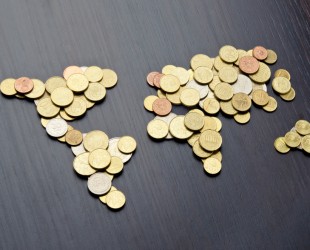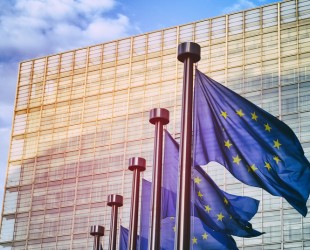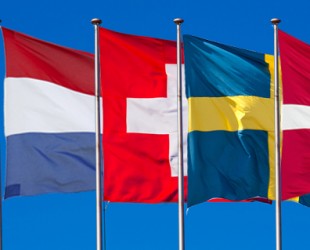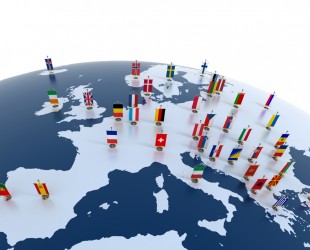Key Issue:The Central Role of European Governments in NGO Funding
Overview
European NGOs are key actors in European foreign aid. Many of these NGOs are active in the Arab-Israeli conflict – whether through their own activities or through their partnerships with Israeli and Palestinian NGOs. These organizations, such as Trocaire (Ireland), Misereor (Germany), ICCO (Netherlands), and DanChurchAid (Denmark), receive most of their budgets from their respective home governments – with additional funds from the EU and other governments and international bodies – and in turn fund Israeli and Palestinian NGOs. In most cases, the intermediates have been given a “blank check,” and the governments are unaware and do not demand accountability for how taxpayer money is actually used.
Although these NGOs are usually based in a particular European country, they often receive funding from multiple governments and are members of Europe-wide coalitions and networks. They demonstrate a pan-European phenomenon of disproportionate and biased involvement with the Arab-Israeli conflict and have a tremendous influence over policy-makers.
These NGOs fall under a number of categories. Many are Christian organizations with various religious affiliations and part of transnational religious coalitions and umbrella organizations – such as ActAlliance, a Protestant NGO coalition, or Caritas Europa, a Catholic NGO coalition. These church aid groups primarily do charitable and humanitarian work, but nonetheless engage in openly political activities. For more information on political activities of church organizations against Israel, see Church BDS.
Other NGOs claim the banner of humanitarian and development aid, such as the Norwegian Refugee Council (NRC) (see below) or Oxfam International. The work of these organizations revolves around the alleviation of poverty and assistance to disadvantaged populations. However, they also frequently engage in campaigns against Israel under the façade of humanitarian and development aid.
Finally, there are NGOs that claim a human rights mandate. Traditionally, these are the most overtly political, and were central to the inception of the Durban strategy. These organizations repeatedly accuse Israel of severe human rights violations, including genocide, ethnic-cleansing and apartheid. Examples are the UK-based NGOs Amnesty International and War on Want, and the France-based NGO coalition FIDH.
Selected Examples of European NGOs’ Involvement in the Arab-Israeli Conflict
- On October 30, 2012, 22 European NGOs released a report, “Trading Away Peace: How Europe Helps Sustain Illegal Israeli Settlements,” calling on the EU to impose economic sanctions on Israel as part of a broader anti-Israel BDS campaign. Signatories include Cordaid, Trocaire, and DanChurchAid, as well as the NGO network ActAlliance. The vast majority of signatories receive considerable funding from the EU and various European governments. Some of their recommendations, such as labeling products from Israeli settlements, have been implemented by the EU.
- The NRC’s program “Information, Counselling and Legal Assistance (ICLA) for increased protection and access to justice for Palestinians affected by forced displacement in Palestine” has been running since 2009 and is funded by the British, Norwegian, and Swedish governments, as well as the EU. A lawyer affiliated with this program stated that the objective of these cases are an attempt to “try every possible legal measure to disrupt the Israeli judicial system… as many cases as possible are registered and that as many cases as possible are appealed to increase the workload of the courts and the Supreme Court to such an extent that there will be a blockage.” (emphasis added)
- Diakonia and Trócaire both partner with Palestinian pro-BDS NGOs Al-Haq and Badil. The Israeli Supreme Court has identified Al Haq’s general director Shawan Jabarin as “among the senior activists of the Popular Front for the Liberation of Palestine.” The PFLP is a designated terrorist organization by the EU. Badil promotes “resistance” and “martyr” rhetoric, anti-peace initiatives, and a “one-state” framework. The organization has also engaged in blatant antisemitic activities.
- Paris-based NGO coalition FIDH, along with other French NGOs and unions, as well as Al Haq, were responsible for sabotaging the business relationship between Israeli mobile phone network Partner Communications (which then operated under the Orange brand) and French corporation Orange Group. The NGOs published a report on May 6, 2015, “Orange’s Dangerous Liaisons in the Occupied Palestinian Territory,” targeting the French company and “the French State as Orange’s principal majority shareholder.” FIDH was founded in 1922 by 20 national French and German organizations as the “first international human rights organization.” It was also a signatory to “Trading Away Peace” (see above).





